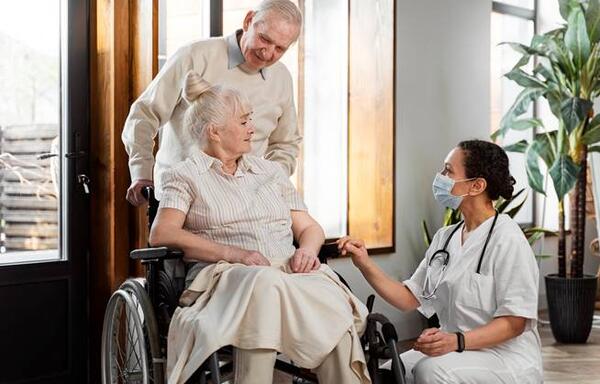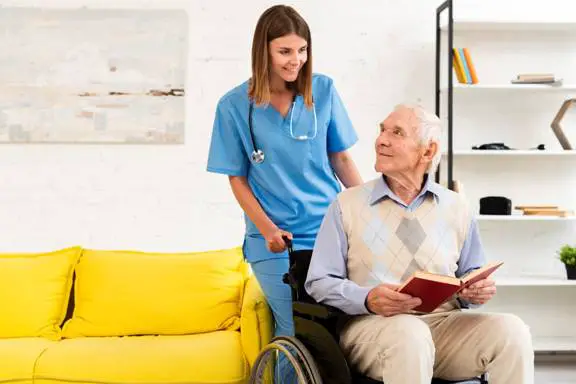
Caring for the Older Adult as a Nursing Student
Healthcare services for older adults require deep-rooted knowledge and an enriching experience for nursing students to be able to cater to the healthcare needs of old patients. At an age where health concerns and ailments slowly trickle into life, students and medical practitioners require a good level of training to be able to deliver medical relief to a patient.
One major part of this learning is fostered in nursing students at the start of their clinical experiences to equip them with sound knowledge on care, concern, and proven health practices.
Knowledge of healthcare needs
Nursing students must understand the major differences in ailments and health issues faced by older adults in comparison to their younger counterparts. Symptoms and complications faced by the older adults are possibly alleviated and can bring about complexities, something that a similar ailment in young adults might be missing or easy to treat.
This knowledge and understanding of differences in the body, its reactions, and symptoms can help with targeted medical services that are hinted at relieving the patients from pain by prescribing medicines that suit their body systems better or reducing the presence of symptoms bringing relief over time.
Inducing contact and communication
As nursing students must understand and learn about their patient demographics, it is important to also instill feelings of care and increase the frequency of contact with older people.
This helps by leading them to think and worry about issues at old age. These could pertain to aging, anxiety, loneliness, and even depression for some patients. The first step is to get them to get caring for older adults and look at opting for gerontological medical practice.
Ask for help with your students work 
In your student journey in the medical field, an important part of this will require the preparation of essays on nursing and caring for patients. For high-quality essay writing, try Edubirdie for essays on caring for older adults or on the ethical medical practices in the medical care category. The assignments and essays from professional writers help a great deal in presenting good quality work and understanding the dynamics of patients and the desired quality of services needed in the professional field.
Addressing the presence of age gap
Creating a positive attitude towards older adults and their treatment is rather necessary to increase the number of nursing students who prefer and opt for nursing services. Strategic modules and content focused on the importance and need of clinical programs for adults is one way to increase the interest.
It is important to make students aware of the issues that exist and how their medical services can bring about changes, decreasing the existential gap in the selection of services for older patients. A standalone course on nurses to work with older adults will involve in-depth knowledge and training for them to feel confident as they treat the patients.
Knowledge of Healthcare Needs
On average, the medical courses only offer a section or study of older patient care and treatment only in the senior years. This is a major factor that leads students to either already choose their specialization or ignoring the existing importance of older patient care.
St. Charles Parish students like to find a premier senior living residence in Luling where they can practice and gain experience with older adults. This will also increase their knowledge base and encourage them to take up gerontological medical practice.
A simple way to help them make better decisions, one must introduce the subject of older patient care, and how that holds importance in the medical field must be shown early on in their medical journeys. Opening up avenues for future possibilities helps students through the process of getting a nursing job streamlines, better informed, and well thought of.
Diminishing existence of misguided perception
A misguided perception that older patients require assistance with all activities and medical care by nurses is nothing but hard physical labor. This is a miscommunication that has prevailed for a long time and has been continuously fueled by media stories and passed on casually to students by professors or colleagues who may have had similar experiences.
This change in perception can simply remove the inhibition and help a nursing student look at the possibilities of providing good medical services to older adults who usually do not require complete assistance but guidance and support from their health service providers.
Conclusion
Growth in the aging population will subsequently require a large number of nurses who’d be willing to work with old patients. The major change will only start happening if students will be taught the importance of gerontological medical practice. They need to be trained on how it will help improve patients’ lives. Quality of training and educating aspiring nurses will further help shape them as good medical health practitioners, and this must begin right at the start of their medical journey.